About the 757
The Boeing 757 is an American narrow-body airliner designed and built by Boeing Commercial Airplanes. The then-named 7N7, a twinjet successor for the trijet 727, received its first orders in August 1978. The prototype completed its maiden flight on February 19, 1982, and it was FAA certified on December 21, 1982. Eastern Air Lines placed the original 757-200 in commercial service on January 1, 1983.
About Aeroperú
Empresa de Transporte Aéreo del Perú S.A., branded as Aeroperú, was a Peruvian airline, serving as flag carrier of Peru from 1973 to 1999. The company was headquartered in Lima, with the city's Jorge Chávez International Airport serving as its primary hub. Besides an extensive domestic route network, Aeroperú offered international flights to places in Latin America and the United States of America. The company had around 1,500 employees. It ceased operations in 19
In July 1981, Aeroperú was gradually privatized, with the Peruvian government keeping a minority share of 20%. In 1982, plans were made for a merger with Faucett Perú, the other large passenger airline in the country at that time. As a preparatory measure, redundancies in the route networks of the two airlines were removed, so that Aeroperú had to suspend flights to a number of destinations, including Rio de Janeiro, São Paulo, New York City and Los Angeles. No further steps were taken towards merging the two airlines, and so in 1983 flights to several destinations recommenced. A bilateral air traffic agreement between Peru and the United States expired on 11 November 1983. Because of disagreements over the granting of fifth freedom rights, all flights between the two countries were suspended in May 1984 until mid-1985, which affected Aeroperú's Lima-Miami route.
About Aeroperú 603
Aeroperú Flight 603 (PL603/PLI603) was a scheduled passenger flight from Miami International Airport in Miami, Florida, to Arturo Merino Benítez International Airport in Santiago, Chile, with stopovers in Quito, Ecuador, and Lima, Peru. On October 2, 1996, the Boeing 757-23A aircraft flying the final leg of the flight crashed, killing all 70 people aboard.
Flying over water, at night, with no visual references, the pilots were unaware of their true altitude, and struggled to control and navigate the aircraft. The investigation determined that the air data computers were unable to show correct airspeed and altitude on cockpit displays because a maintenance worker had failed to remove tape covering the pitot-static system ports on the aircraft exterior.
Aeroperú Flight 603 (PL603/PLI603) was a scheduled passenger flight from Miami International Airport in Miami, Florida, to Arturo Merino Benítez International Airport in Santiago, Chile, with stopovers in Quito, Ecuador, and Lima, Peru. On October 2, 1996, the Boeing 757-23A aircraft flying the final leg of the flight crashed, killing all 70 people aboard.
Flying over water, at night, with no visual references, the pilots were unaware of their true altitude, and struggled to control and navigate the aircraft. The investigation determined that the air data computers were unable to show correct airspeed and altitude on cockpit displays because a maintenance worker had failed to remove tape covering the pitot-static system ports on the aircraft exterior.
Overview
Aircraft
The aircraft, a Boeing 757-23A was delivered new from Boeing on December 2, 1992, to Ansett Worldwide. It was leased to Aeroméxico on 27 September 1993 and then sub-leased to Aeroperú on April 1, 1994. The lease transferred back to Ansett in February 1995, and Aeroperú continued to operate the aircraft until it crashed.
Crew
The captain was 58-year-old Eric Schreiber Ladrón de Guevara, who had logged almost 22,000 flight hours (including 1,520 hours on the Boeing 757). The first officer was 42-year-old David Fernández Revoredo, who had logged almost 8,000 flight hours, with 719 of them on the Boeing 757.
Accident
On October 1, 1996, Aeroperú Flight 603 from Miami International Airport had landed at the Lima Airport. There were 180 passengers on the first leg of the flight on a Boeing 757. Of those, 119 had exited the plane, and the remaining passengers were transferred to another Boeing 757.
This aircraft took off 42 minutes after midnight (05:42 UTC) on October 2,:?10? and the crew immediately discovered that their basic flight instruments were behaving erratically, and reported receiving contradictory serial emergency messages from the flight management computer, including the altitude and airspeed indicator, rudder ratio, mach speed trim, overspeed, underspeed and flying too low. The crew declared an emergency and requested an immediate return to the airport.
Gallery
Specifications
Spotlights
- CCCP0000001 2.3 years ago
General Characteristics
- Predecessor XJ-757-200
- Successors 3 airplane(s)
- Created On iOS
- Wingspan 119.9ft (36.5m)
- Length 154.4ft (47.1m)
- Height 44.5ft (13.6m)
- Empty Weight N/A
- Loaded Weight 128,760lbs (58,404kg)
Performance
- Power/Weight Ratio 0.628
- Wing Loading 65.1lbs/ft2 (317.7kg/m2)
- Wing Area 1,978.5ft2 (183.8m2)
- Drag Points 18008
Parts
- Number of Parts 427
- Control Surfaces 5
- Performance Cost 2,195


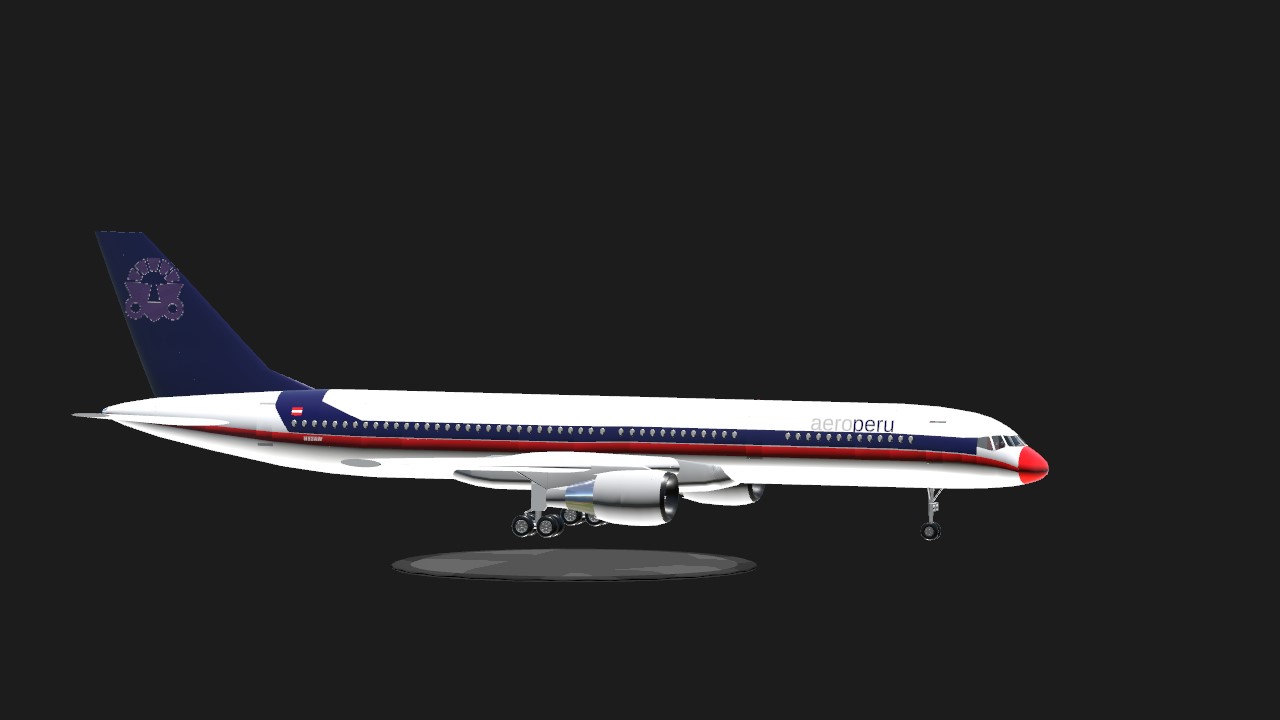
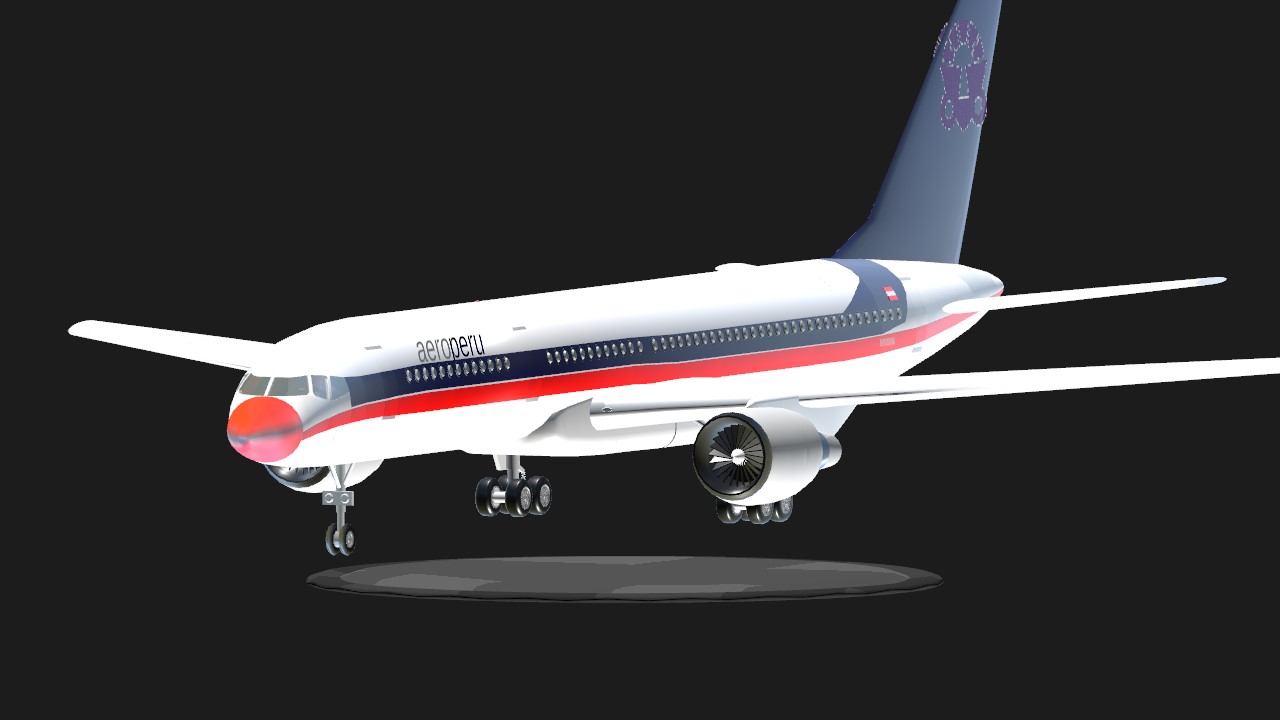


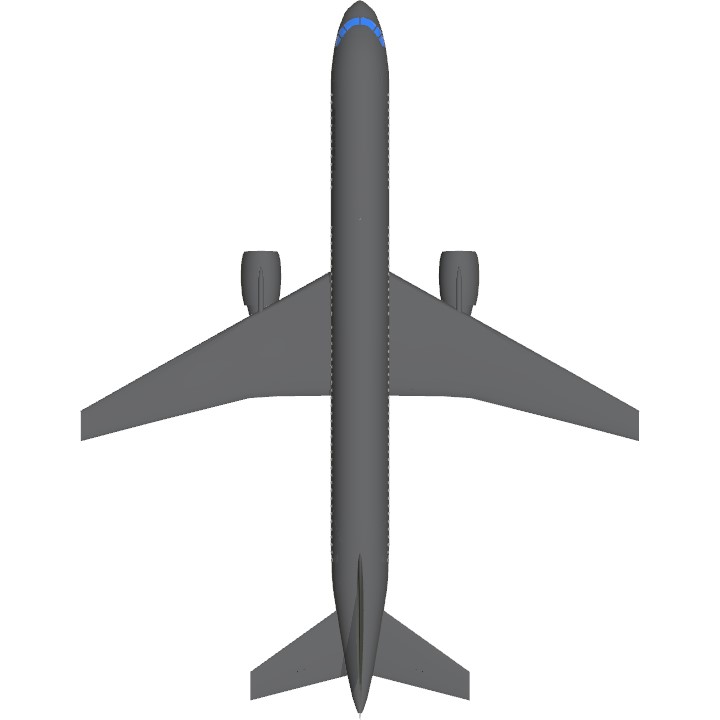
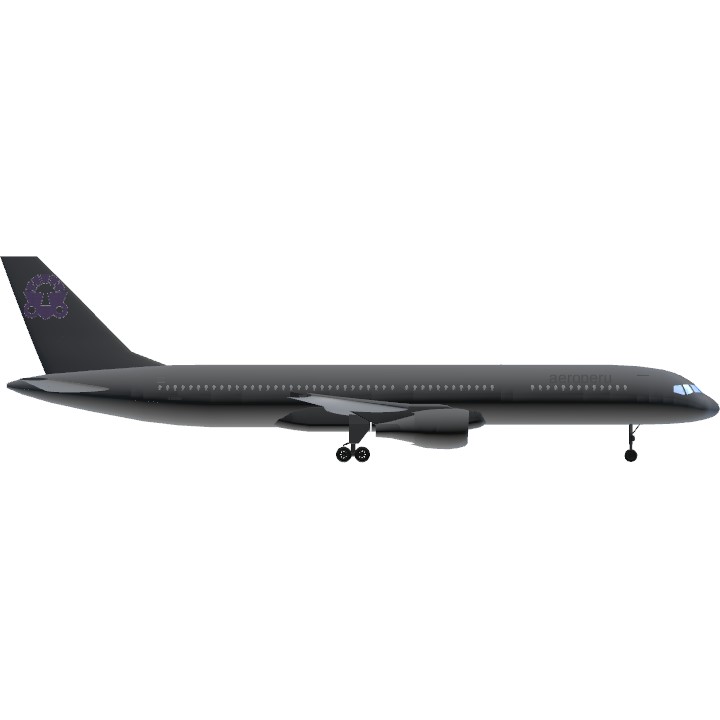
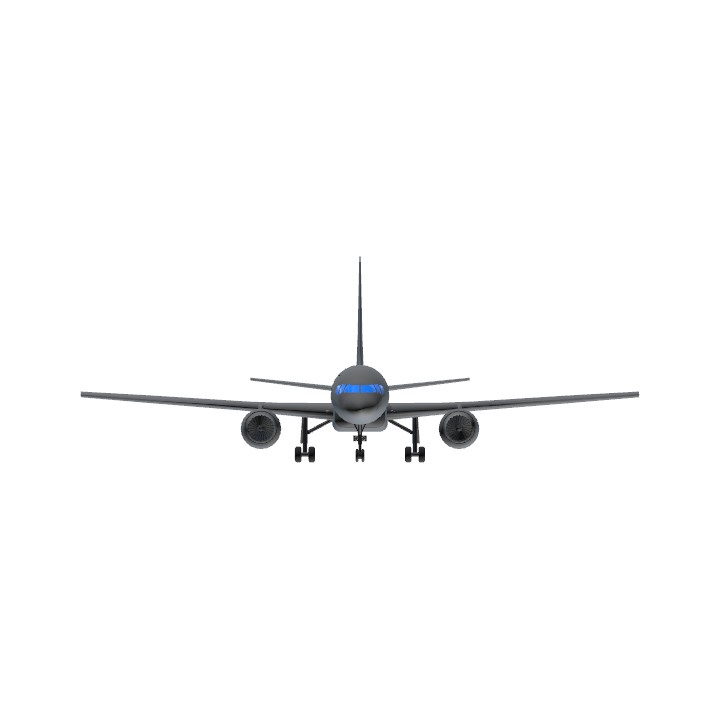
Tags:
@XPAAircrafts
@XAircraftManufacturer
@ZerkkTheSimper
How do You make the logo? I need tutorial.
@Funnny trying to do it but I won't show a single pixel any extra details you know about how to make the logo?
@Transworld58 you can
I would like to use the logo for my Aeroperu Dc-10 pls?
@PhilippineAir look on RepublicofCursedplanes profile and find livery
@Transair56 How did you add the logo?
@Pooplee WE ARE IMPACTING WATER!
WE GOING INVERTED🔥🔥🔥🔥💥💥💥
Too low terrain,too low terrain,too low terrain, too low terrain!
@hellfireking thanks
@BeechcraftA35 I wouldn't even know how to do that so I'm gonna say you still did a good job rest the rest of the plane. :)
@Majakalona true
whoever says the 757 is the pencil plane should get ebola
the a340 is the true pencil pain
Yeszzzzz
I know I copied from Wikipedia and the tail logo is wrong I just wanted to save time